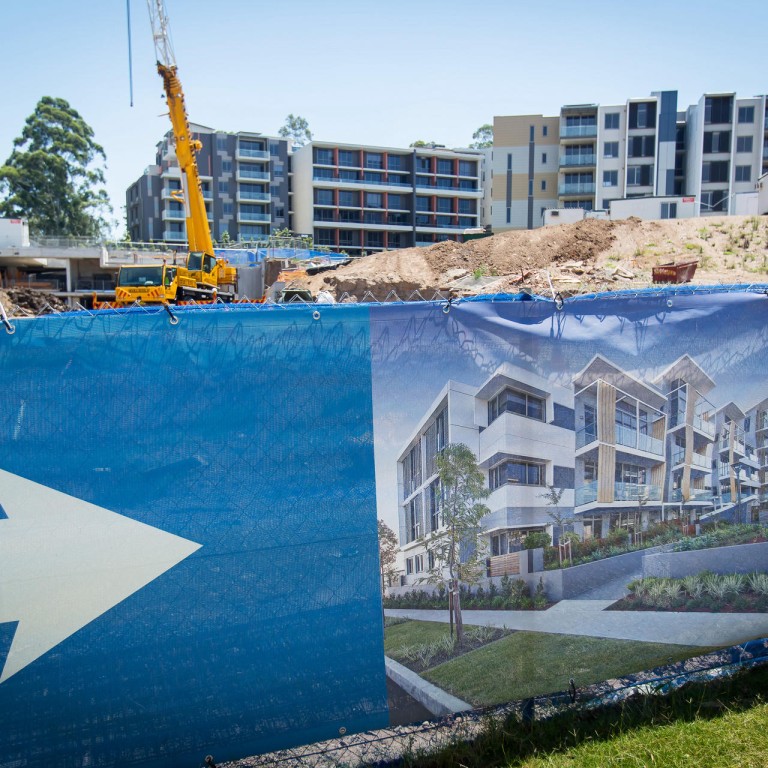
Australia worries about two housing markets: its own and China's
Economy at risk as Chinese property slowdown hurts demand for biggest export earner iron ore
Australian policymakers have two housing markets to worry about, and it is a toss-up which carries the most risk.
One is too cold, the other too hot. One they cannot do anything about as it is in China, the other is a home-grown headache the authorities are just starting to wrestle with.
How they unfold will have lasting ramifications for Australia's economy and interest rates.
"There are two prices that matter for Australia now, those for homes and those for commodities," said Paul Bloxham, the chief economist for Australia at HSBC. "Since the Chinese housing market is such a driver of demand for commodities, it matters just as much in the big picture as the domestic market."
The property sector accounts for about 15 per cent of the Chinese economy and its impact on some 40 industries, from furniture to steel, is of increasing concern to Beijing as it drags on growth.
The alarm is shared by Australia as more than 35 per cent of its exports go to China, giving it an annual, bilateral trade surplus worth about A$50 billion (HK$339 billion).
Reserve Bank of Australia governor Glenn Stevens recently nominated falling Chinese housing prices and their possible impact on the shadow banking sector as one of his key concerns.
The central bank devoted a chunk of its biannual report on China's financial system to highlight the risks, noting that about half of all new credit created in recent years had come from outside the regulated sector.
"Concerns about asset quality in China have been heightened by softening conditions in the residential property market," it said in the report. "While China has been able to manage a small number of defaults in trust funds and corporate bonds, a more widespread series of private-sector defaults - potentially associated with a sharp correction in property prices - could be more damaging."
Even if the financial fallout is contained, any weakness in home-building would be a negative for Australia since the sector is a major user of steel, and thus iron ore - Australia's single biggest export earner.
So it was welcome news in Australia when reports emerged last week that Beijing was allowing banks and regional governments to relax their mortgage rules.
"We think China will be successful in stabilising the economy, and that would be great news for Australia," Bloxham said.
There is some irony, given that the Reserve Bank at the same time announced it was considering tightening lending standards to restrain speculative spirits in the domestic housing market.
Loans for investment were up 30 per cent by value in July compared with the same month last year, four times the growth in loans for owner-occupiers. They also made up 40 per cent of all mortgages, the second-highest share on record.

